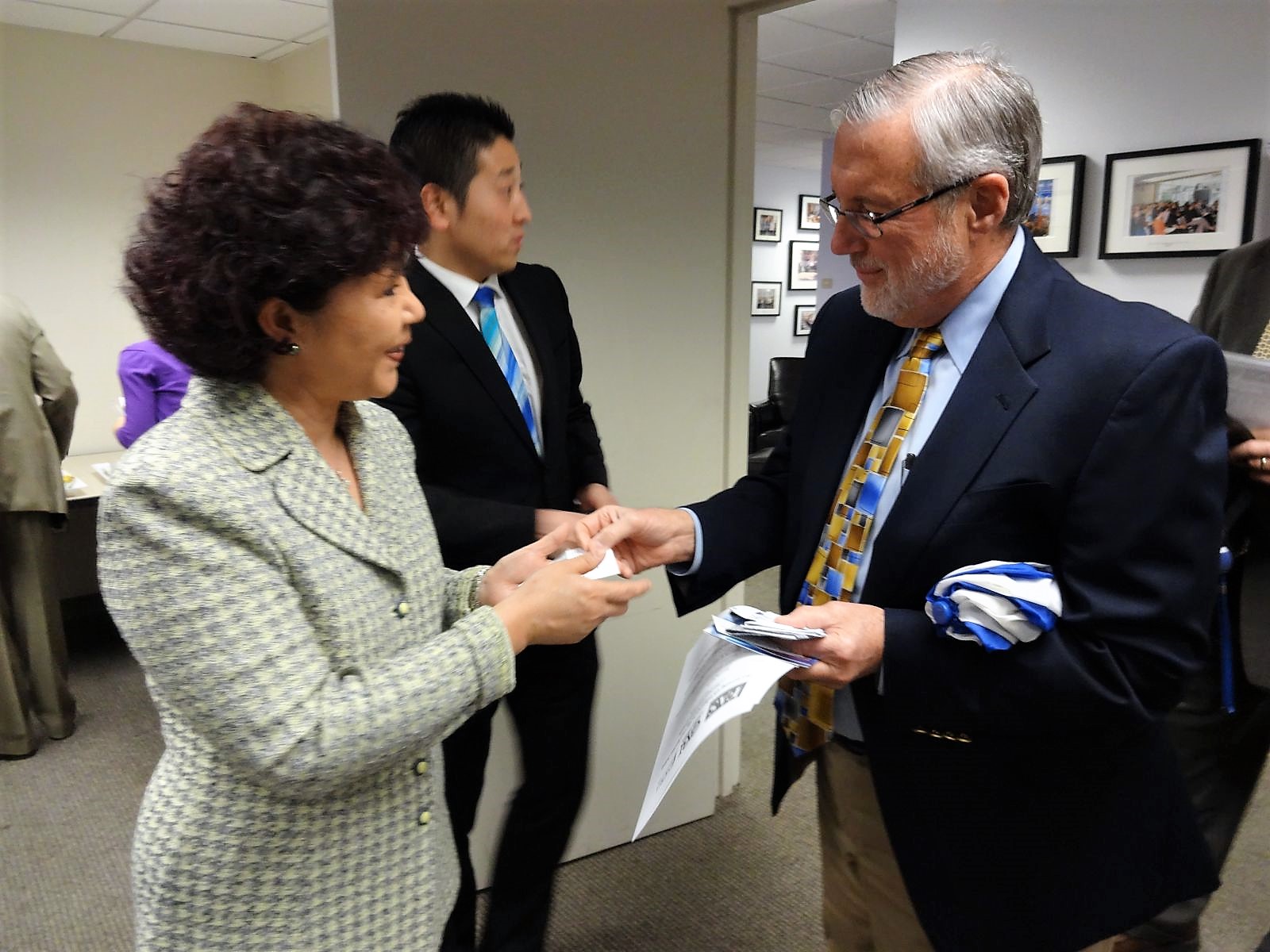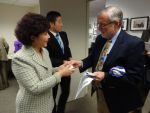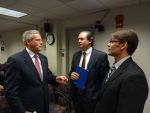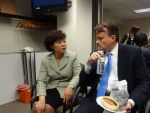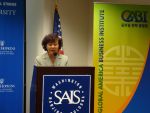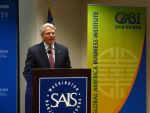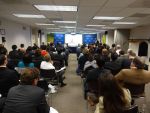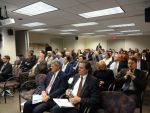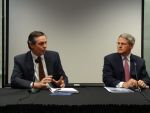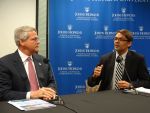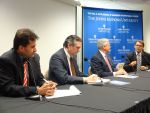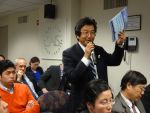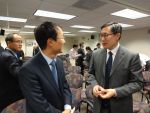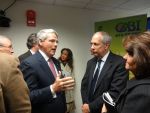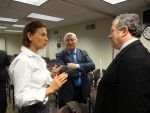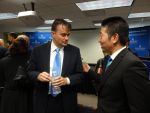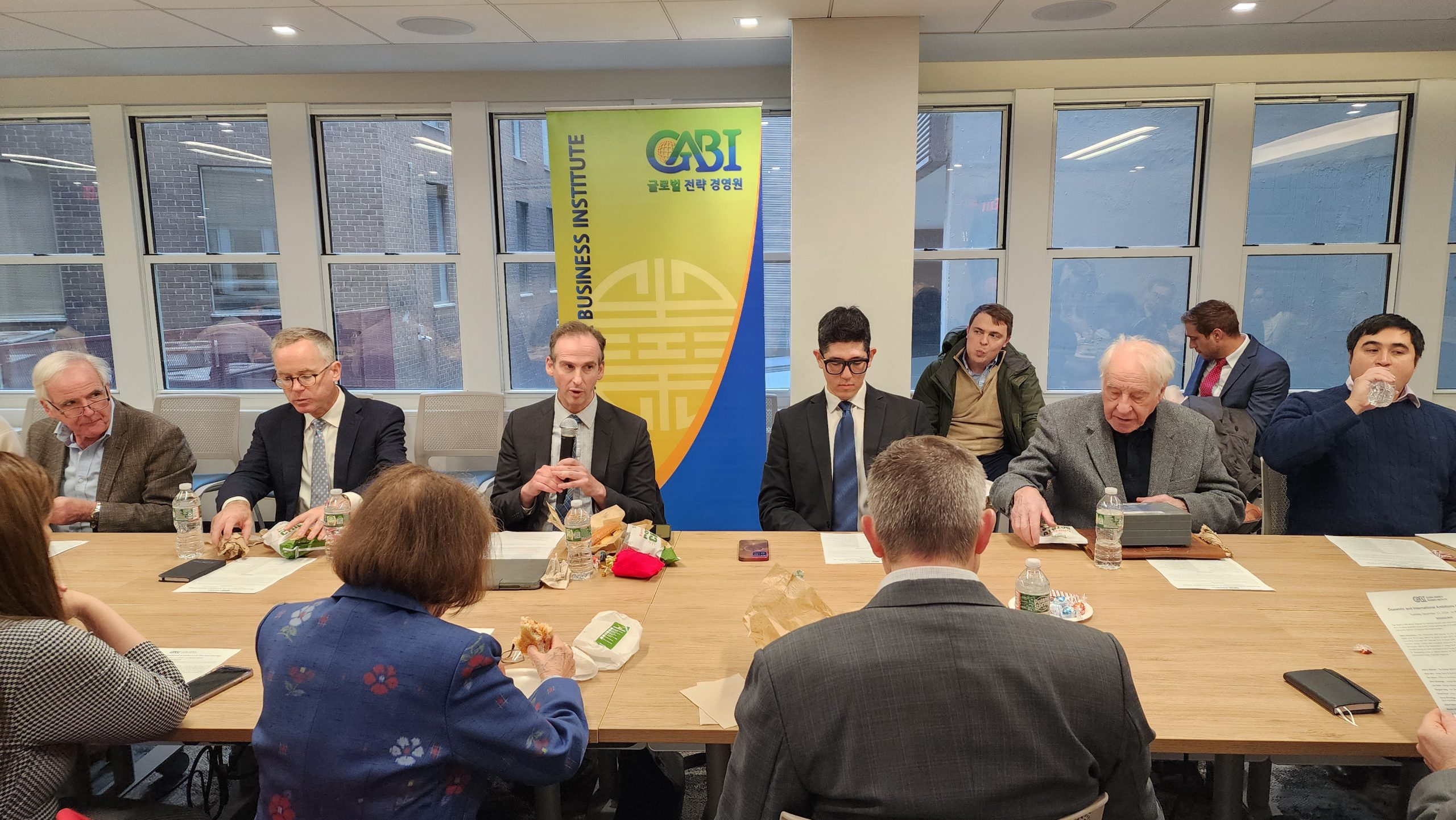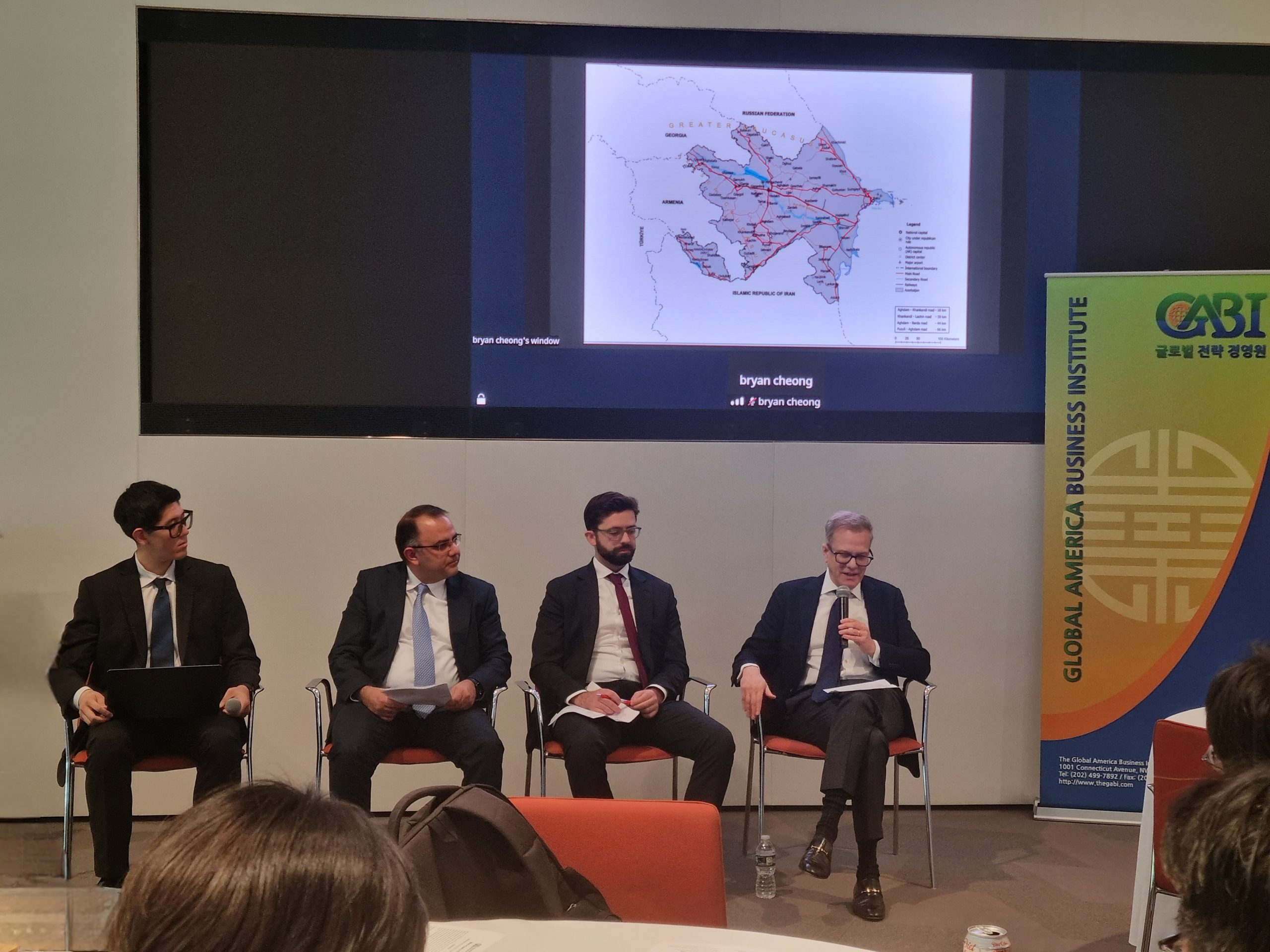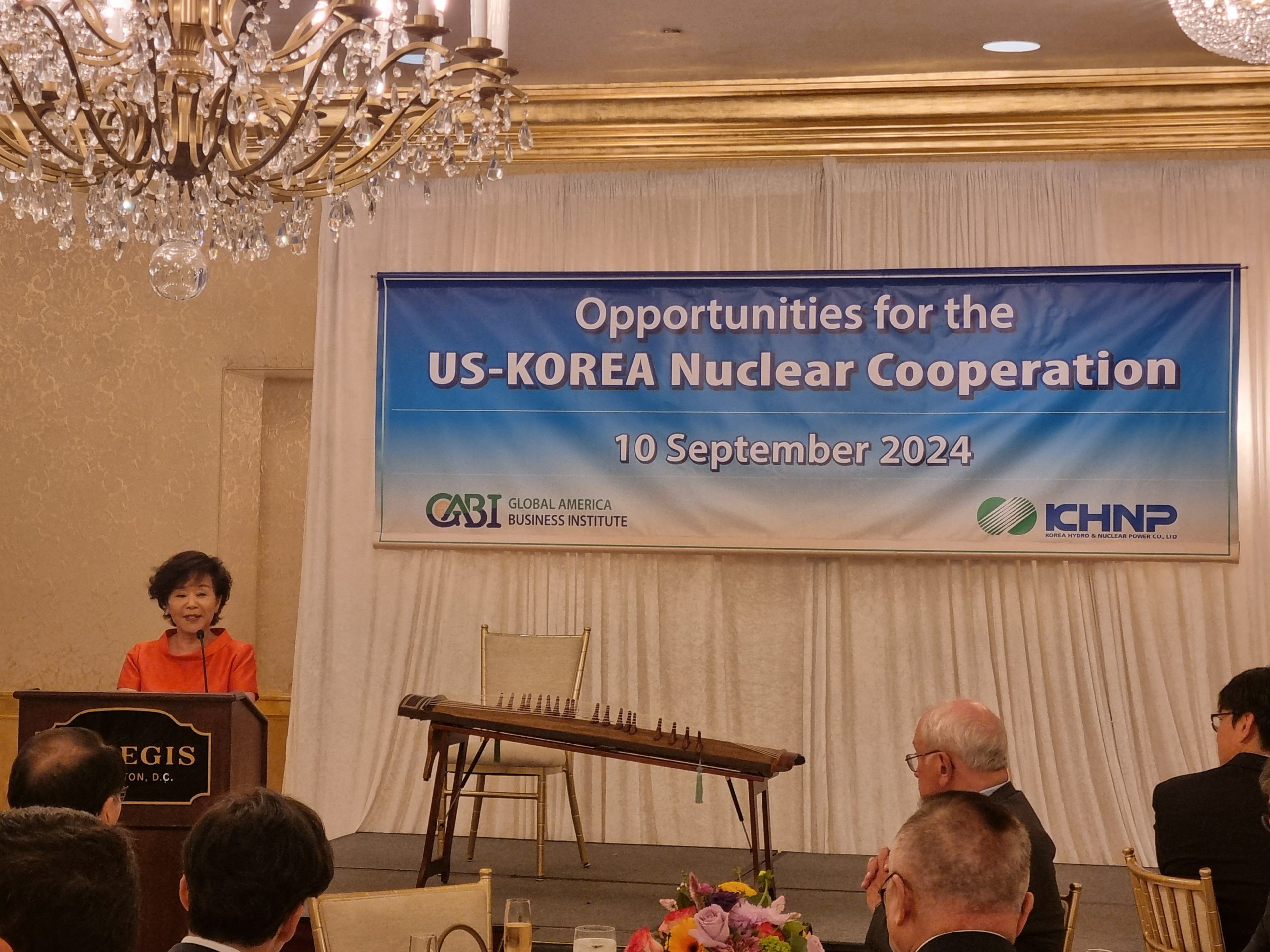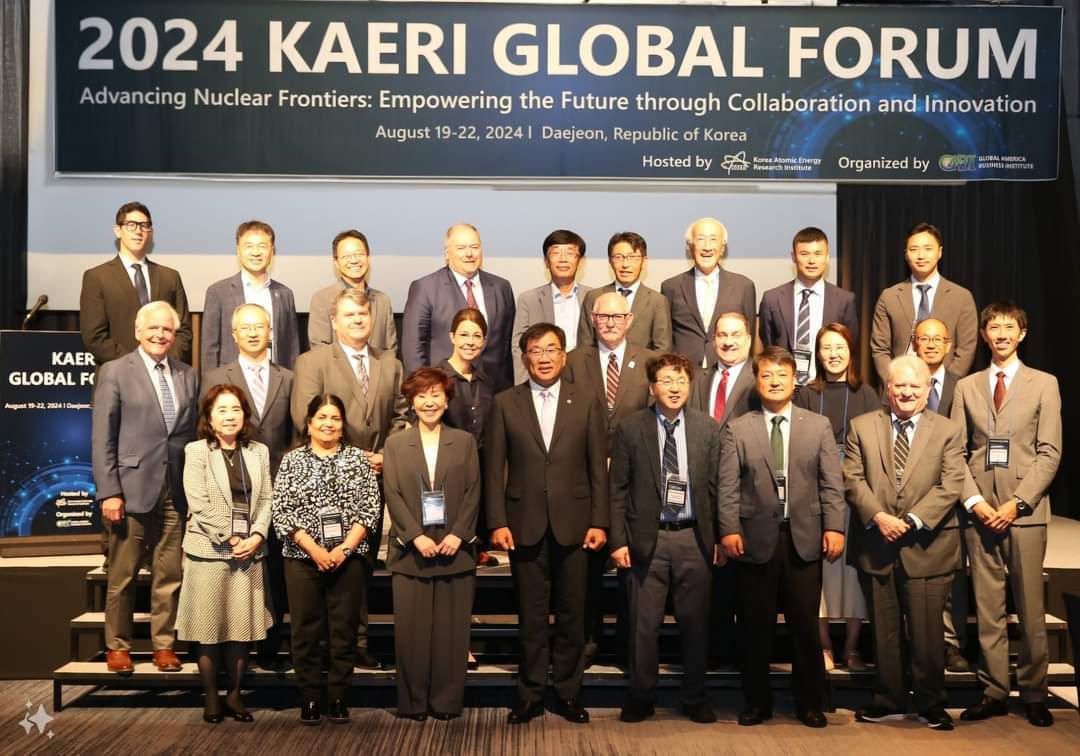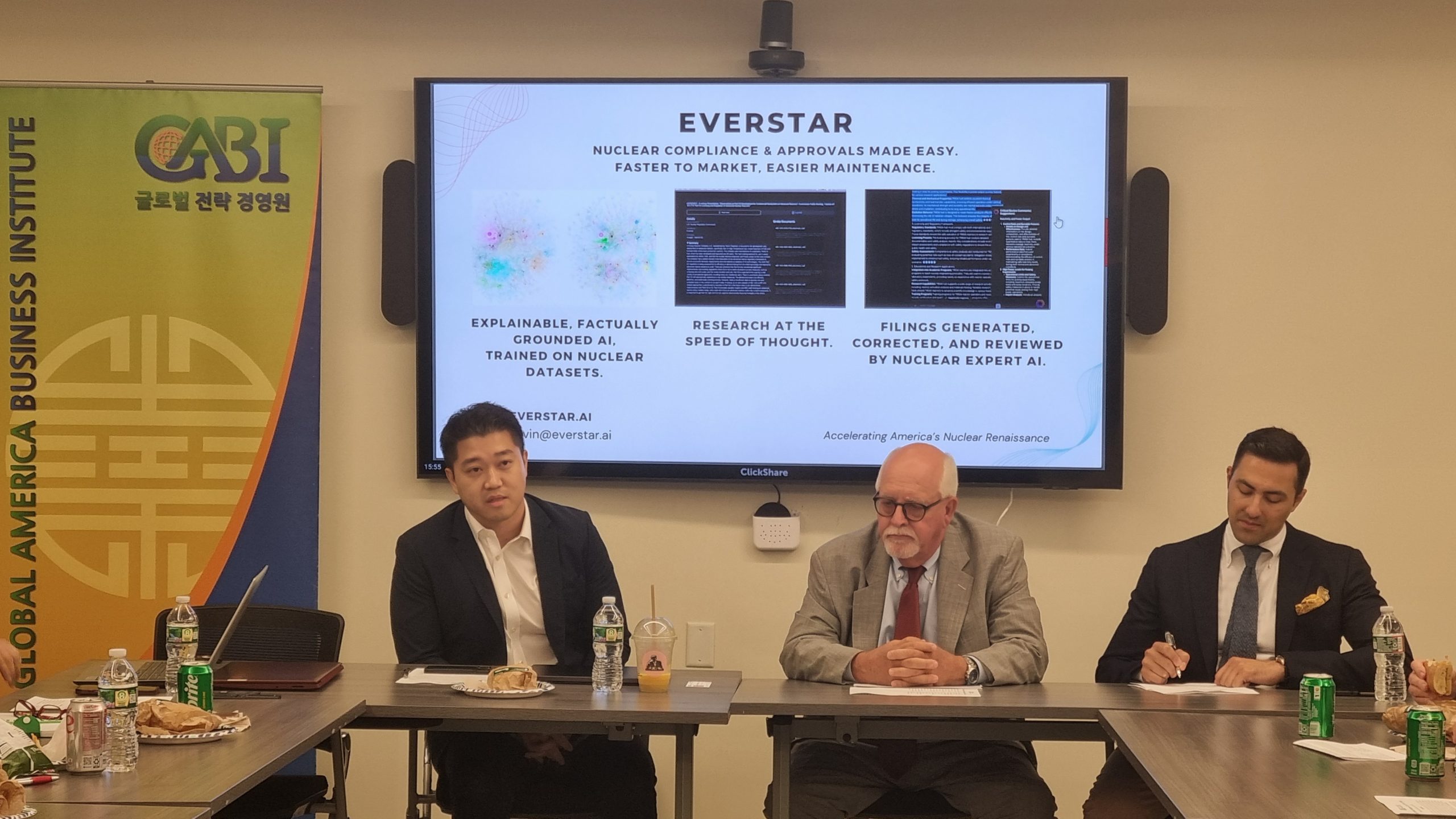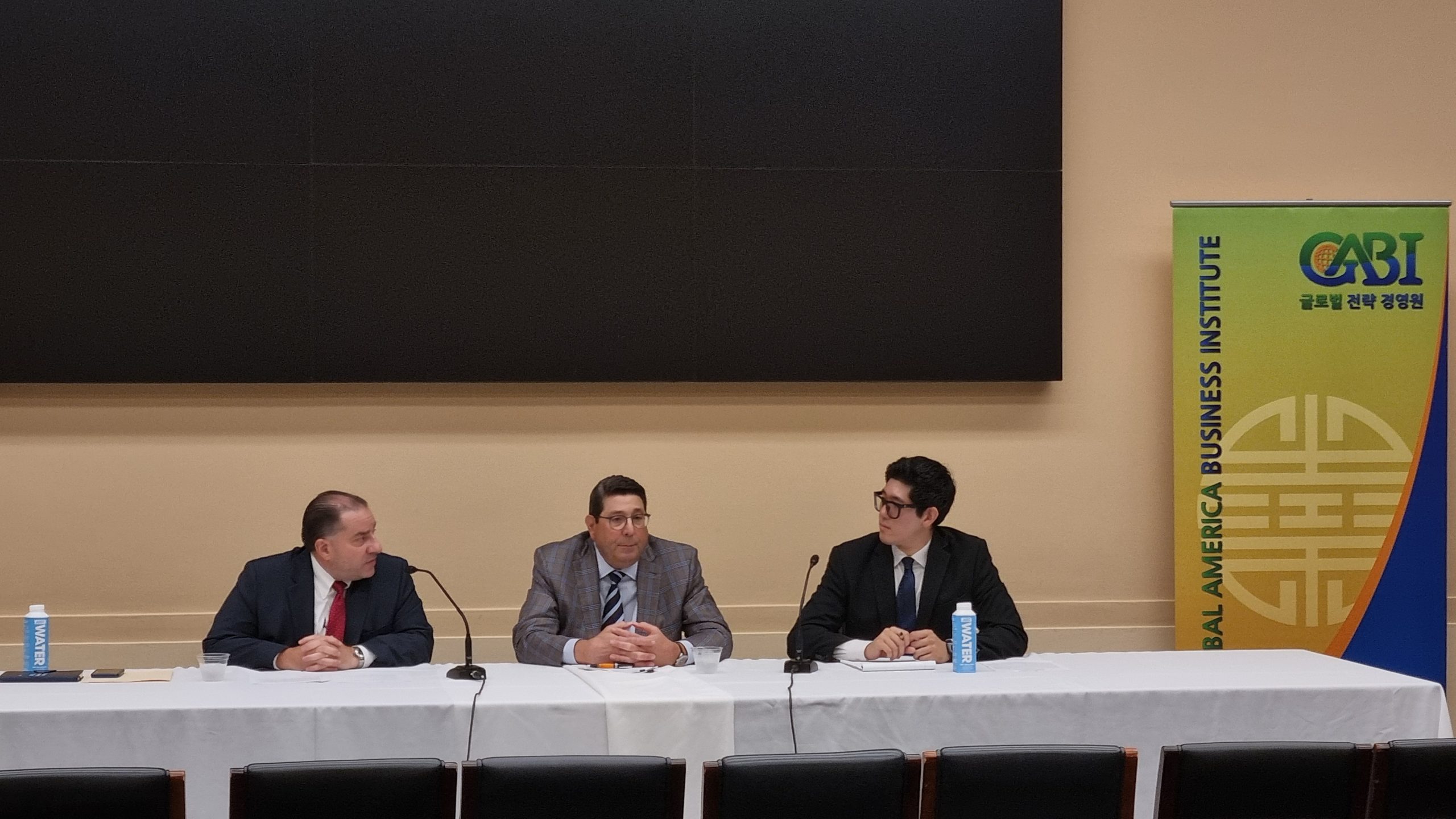Partnering with the Federation of American Scientists (FAS) and the US-Korea Institute at SAIS (USKI), GABI organized an off-the-record briefing featuring various presentations on US leadership in the civil nuclear realm and the importance of international collaboration for the US nuclear industry.
The US civil nuclear program is clearly on the downswing—given current projections, nearly half of all US reactors will be shutdown by 2030 and virtually all will be out of operation by 2050. The shale gas revolution, recent fiscal crises, and the present environment of regulatory uncertainty have been the key factors leading to a waning US nuclear industry. A declining civil nuclear power sector not only has tremendous domestic implications—including negative impacts on the US nuclear navy, technical knowledge base, and grid resilience and reliability—but has the potential to erode US influence on issues such as nuclear safety, security, and nonproliferation internationally. Although nuclear construction in the rest of the world, particularly in developing countries, continues unabated, the pace of new build in the US is inadequate to replace the aging American fleet. Without new nuclear construction, US ability to provide global leadership in civil nuclear matters will wither. As market factors are insufficient to spark a revival of nuclear power in the US, prudent policies by the federal government will be necessary to reinvigorate this critical sector, including efforts to bolster public engagement and the US industry’s export competitiveness. Other measures that can be taken to improve the commercial nuclear program in the US include solving the nuclear waste issue, promoting the development of small modular reactors, developing the nuclear workforce, and providing financial incentives and economic support. However, perhaps the most crucial piece in preserving US leadership in nuclear energy would be expanding international collaboration with key partners, such as South Korea, to promote safe, secure, and reliable nuclear power worldwide.
One specific area in which the US can expand international engagement is R&D on next generation fuel cycle systems and waste management technologies. The US is currently engaged with the ROK in a ten-year project called the Joint Fuel Cycle Studies (JFCS), under which both countries are researching the feasibility, viability, and security of a pyroprocessing-SFR fuel cycle and other back-end management technologies and alternatives. Despite current uncertainties with its spent fuel management strategy, the US presently has no concrete plans to implement a closed fuel cycle. Although closing the fuel cycle may eventually become an imperative for the US in the future, the US is virtually foregoing a potentially significant fuel cycle option through its current policies and priorities—outside of the JFCS, there is no major pyroprocessing research being conducted in the US. As South Korea has taken the lead in pyroprocessing research in many respects, deepening the partnership with the ROK in this area would allow the US to remain engaged in the deployment, commercialization, and safeguarding of pyroprocessing technologies.

